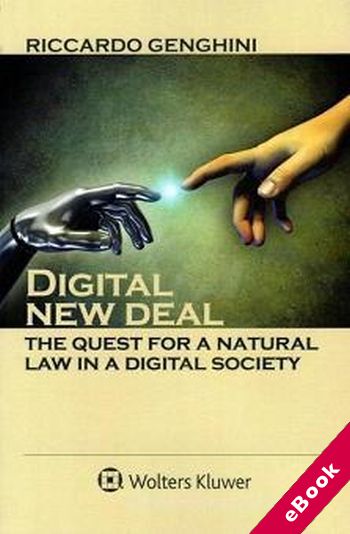
The device(s) you use to access the eBook content must be authorized with an Adobe ID before you download the product otherwise it will fail to register correctly.
For further information see https://www.wildy.com/ebook-formats
Once the order is confirmed an automated e-mail will be sent to you to allow you to download the eBook.
All eBooks are supplied firm sale and cannot be returned. If you believe there is a fault with your eBook then contact us on ebooks@wildy.com and we will help in resolving the issue. This does not affect your statutory rights.
The quest for a natural law that can be applied to a digital society may sound like an oxymoron, but it is a necessary quest if we hope to institute a “Digital New Deal”: Hence the title of this book.
Today once again, mass media is disrupting society, much as radio and cinema were used to buttress totalitarianism in the 1920s … or even worse, in the 15th century, when the printing of the Bible unleashed 100 years of war, plague and instability. Things get messy when people disagree on facts rather than ideas. Natural law springs from the features of the physical world, which contains boundaries (an inside and an outside), limited resources, living individuals, objects, living animals, living plants, climate, the four elements, etc. None of this is a given in the digital world, which looks today like feudalism in a box, with (fire)walled communities run by unelected autocrats (system administrators) ruling over countless subjects, whose identities are tied to the domain of the (fire)walled community and whose rights can only be enforced by the autocratic system administrator.
This dystopic reality is neither necessary nor inevitable. It is the consequence of bad technical design and inappropriate business models, which are destroying the spirit of free pluralism that enabled them to thrive in the first place. Information technology has its own ontology and “natural” rules, and we must understand them and learn to regard them as being among the founding legal principles of our free, open, pluralistic societies. Of the 12 founding digital principles addressed here, the most important may well be that we must each own and control our digital identities. In the world created by information technology, everyone and everything should possess a UID, a unique identifier. Without one, we are just helpless particles lost in a dark and hostile universe.